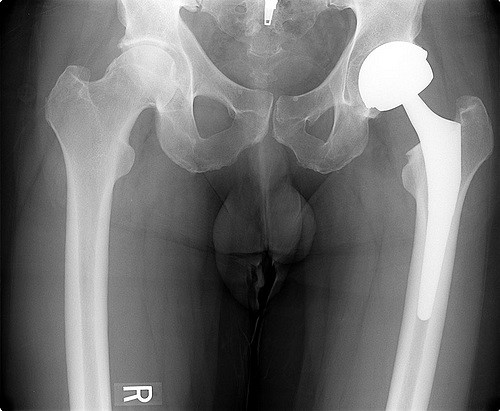Australians have lost interest in Medicare. The walls of parliament now confine debate about its future, and the debate is largely about money. On one single day in parliament (10 May 2005), when the broken safety net promise was under fire, the cost of health care was mentioned no less than 59 times. Parliamentarians mentioned access to services only eight times, and equity not at all. The government has made radical changes to the form and function of Medicare, but the public has been indifferent to them because they have not been informed. If Medicare is to continue to reflect Australian values, advocates need to ignite the public’s interest in debate about its future. Debate needs to venture beyond money; it needs to foster a new, clear discussion about the purpose of Medicare itself.
Last year, the Howard Coalition Government promised to ‘strengthen Medicare’ by introducing a safety net on medical services. Pensioners, health care cardholders and families would fall into the Medicare safety net once they had spent more than $300 in one year on medical services incurred out of hospital. The net would catch all other Australians once they had spent $700. The government would then rebate 80% of further out of pocket medical expenses, regardless of their extent.
The Opposition Australian Labor Party (ALP), and in particular Shadow Minister for Health Julia Gillard, attacked this change to Medicare. Gillard argued that the safety net was a fundamentally flawed policy and a ‘sham’ from which ‘95% of Australians would get nothing’. She argued that the safety net ‘would lead to inflation of doctors’ fees’ and ‘spell the end of Medicare as a universal system’ (Australian Labor Party News Statement, 10 March 2004 ). While the government largely ignored these criticisms in parliament, Health Minister Tony Abbott did defend the safety net during the 2004 federal election campaign. He promised Australians a ‘rock solid, iron-clad guarantee’ that both the policy and threshold levels would remain intact after the election.
Within six months of their electoral victory, the Coalition government broke their promise. Anticipating the fallout, the Prime Minister took charge. He explained that the safety net policy would cost far more than he expected – $800 million more over four years – and in order to sustain the safety net, the thresholds must rise. He then set new thresholds at $500 per annum for pensioners, health care cardholders and families, and $1000 for other Australians.
The Opposition attacked Tony Abbott over his broken safety net promise by claiming that he had been deliberately dishonest. They called for his resignation. The public expressed its reaction in letters to newspapers, and although muted, it was deeply cynical. One letter writer to the Hobart Mercury on 20th April 2005 wrote:
‘The Australian Federal Government must have known that the Medicare safety net was going to blow out so soon and I believe were prepared for it and the reshuffle of thresholds for the sake of winning the election.’
Another wrote to The Australian the same day:
‘Tony Abbott should be commended for his honesty and not lampooned over the Medicare safety net. During the Republic referendum, he was quite forthright in declaring that ‘you can’t trust politicians.’
Although Tony Abbott took his broken promise and calls for his resignation seriously, he chose to remain in the job as health minister. His defence? He said he made his pre-election safety net promises ‘in good faith’. It seems that his faith was uninformed by fact.
Health accounts for a substantial and growing proportion of the government’s total budget and of national expenditure – in 1991-92, according to the Australian Institute of Health and Welfare health costs amounted to 8.1% of GDP and 9.5% by 2002-03. The Departments of Treasury and Finance undertook a detailed costing analysis of the safety net policy prior to the election. The department identified the likely cost blow-out. When quizzed after the election about this assessment, Abbott pleaded ignorance, claiming that departmental officials had not told him about it before the election. This is reminiscent of other missing intelligence concerning the ‘children overboard’ scandal, when the Prime Minister claimed that he (like Mr Abbott in the next election) was never informed that the children had not been thrown overboard.
Yet, the safety net policy design faults should have been obvious to Mr Abbott’s staff, even if Treasury had kept the unworkability of the safety net to themselves. Perhaps Mr Abbott himself might have guessed that it would not work. Because the safety net is an uncapped subsidy for the cost of medical treatment, it was inevitable that Medicare items would expand to include services previously not covered (like a lot of fringe services for women undergoing IVF) and that medical fees would also rise. These flaws in the policy should have rung alarm bells for the government for two reasons: first, an understanding of them is basic economics, and second, the precedent of what happened with the private health insurance rebate.
While technical debate on health financing policy is necessary in parliament, it is not sufficient when considering an instrument of such social significance as Medicare. Besides, health care financing does not interest most people. Advocates of Medicare, and the ALP in particular, need to engage the public’s interest by shifting the debate out of parliament and back into the public domain. Advocates can achieve this by doing what Gough Whitlam did in the early 1970s. He established a health care debate that considered ‘economy and efficiency and also equity’. It can be done. In Western Australia, health authorities have used citizens’ juries to decide what health services should be available. The success of these juries shows that when citizens are given evidence and time to deliberate, they are capable of dealing with ‘big issues in health care – conceptually and practically’ (G.H. Mooney and S.H. Blackwell), that is they are able to make choices in relation to health service financing and service provision.
Improving the heath economic credentials of the public however, is not enough. Medicare advocates must ensure that social values, including equity and universality, are high on the agenda for public debate. These underlying values are largely responsible for Medicare’s success, both socially and economically. The economic sustainability of the scheme and its principles (or social values) are mutually dependent. It makes no sense to debate Medicare without reference to both these important aspects.
With the Coalition controlling both Houses of Parliament, now, more than ever, we depend on the Australian public to ensure the government delivers on their promise to strengthen Medicare.



